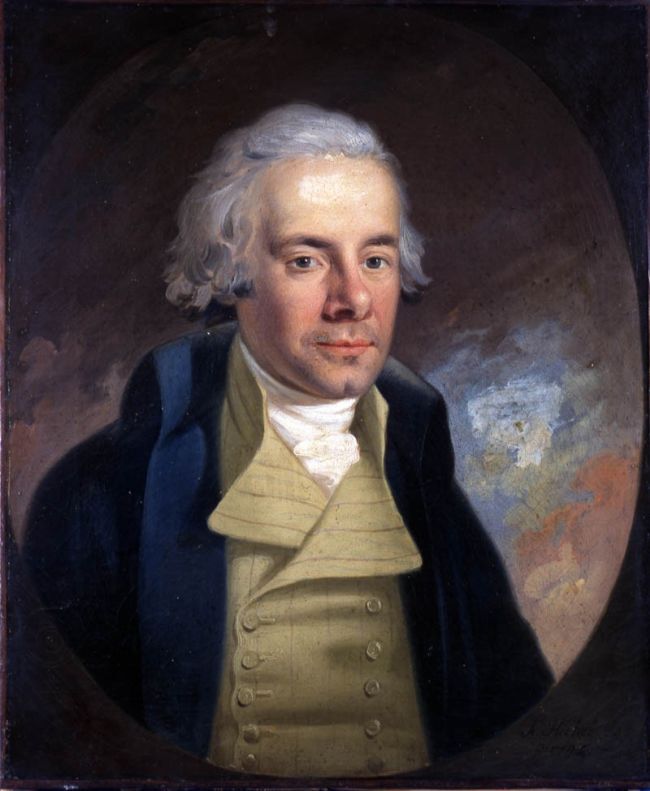Amazing Grace
William Wilberforce and the abolition of the slave trade

William Wilberforce depicted by Anton Hickel (1794), from WikiCommons.
In June 1787, the Society for Effecting the Abolition of the Slave Trade was established in Great Britain, initiated by the deacon of the Church of England, Thomas Clarkson. One of the leading figures of this society was William Wilberforce, a member of the House of Commons with an impeccable reputation and, more importantly, a close friend of William Pitt the Younger, who had become the youngest Prime Minister in British history in 1783 and was a strong supporter of the abolitionist cause. Their ranks were further strengthened the following year by Pastor John Newton, a former slave trader who had converted to Anglicanism and repented for his past deeds. In 1773, Newton composed the hymn "Amazing Grace" to celebrate his conversion. "Amazing Grace" would become the anthem of the abolitionists and reads: "Amazing Grace! (How sweet the sound) / That saved a wretch like me! I once was lost but now am found. / Was blind, but now I see."
However, for many years, the opposition of those who advocated a gradual approach to the abolition of the slave trade prevailed, due to the strong support they enjoyed in the House of Lords, whose members were staunch proponents of the trade, given the enormous profits they derived from it. The war with Napoleonic France, which broke out in 1793, inadvertently provided the abolitionists with an opportunity to reignite the flame of hope: by introducing the Foreign Slave Trade Bill in 1806, British subjects were prohibited from participating in the slave trade with French colonies and their allies. After the Foreign Slave Trade Act was passed by the House of Lords as well, in February 1807, the new Prime Minister, the staunch abolitionist William Grenville, proposed the Slave Trade Abolition Act to the House of Lords, which was overwhelmingly approved by a large majority in both Houses. The final blow to the slave economy came in July 1833 with the Slavery Abolition Act—Wilberforce died three days after presenting his last bill, completing his lifelong battle.
Luigi Bruti Liberati, Storia dell'impero britannico 1785-1999 (Milan: Bompiani, 2022), pp. 27-63.
2025-04-02
Salvatore Ciccarello
